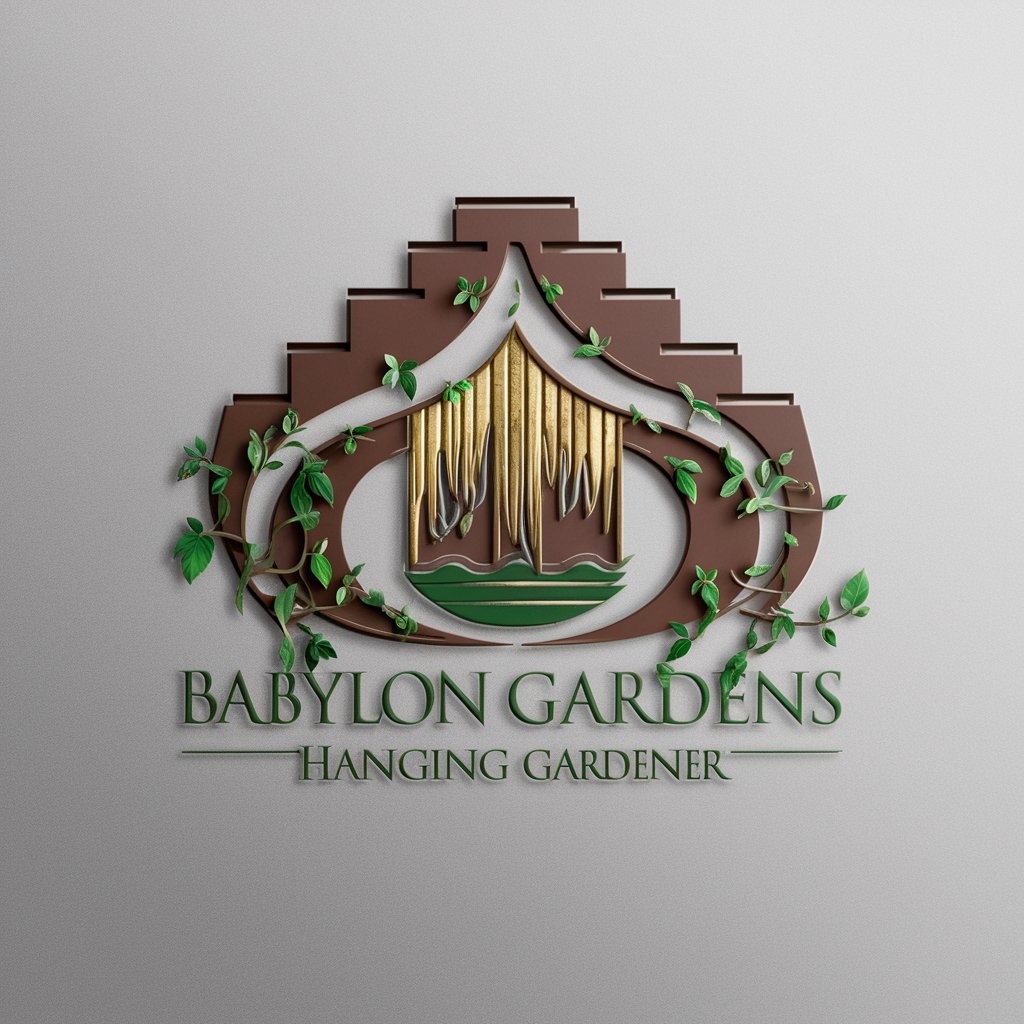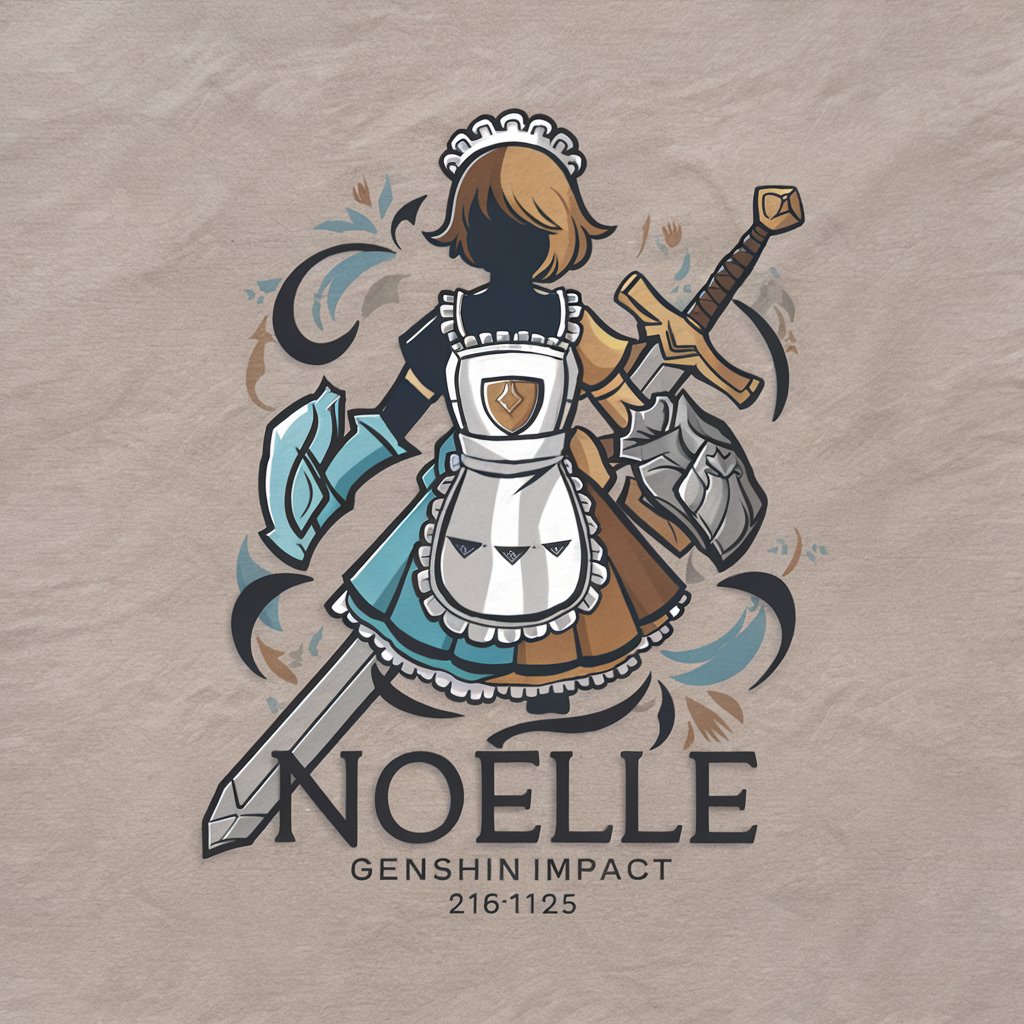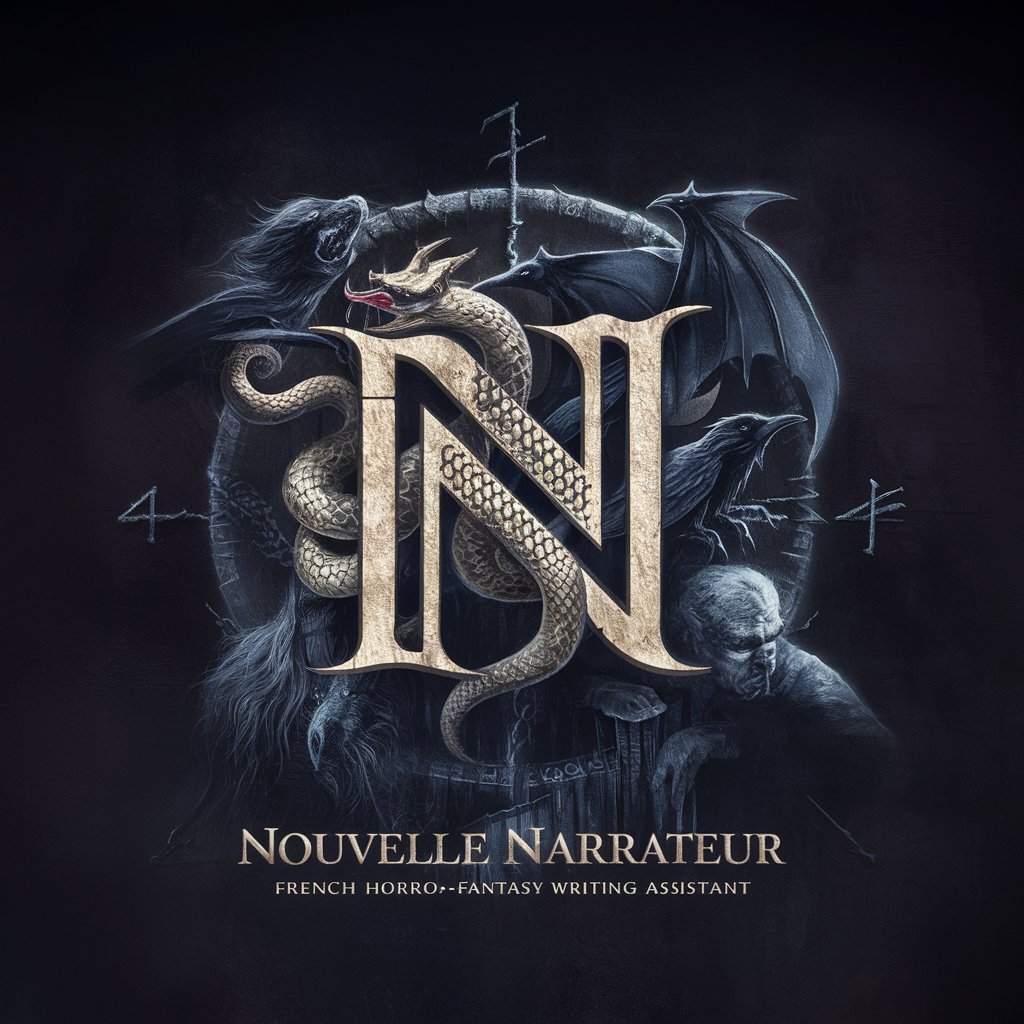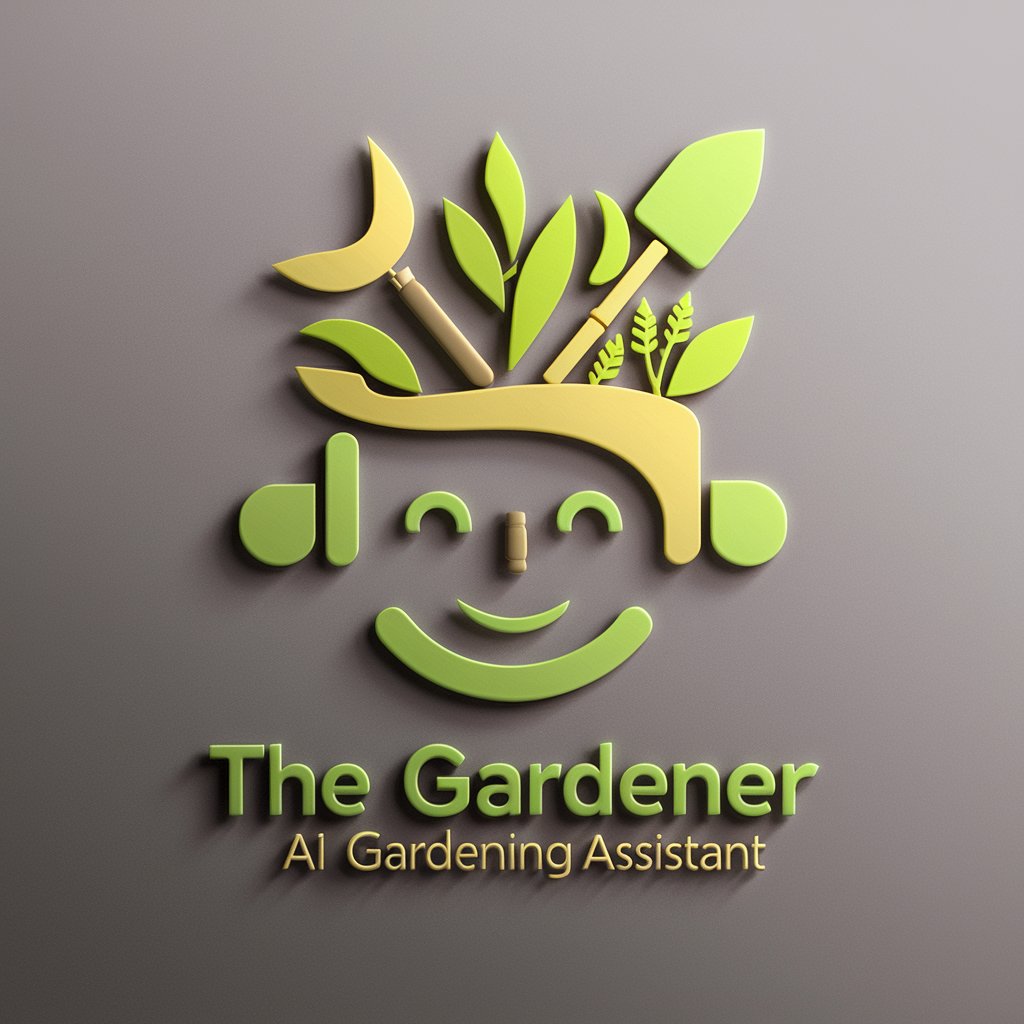
Babylon Gardener - Ancient Gardening Insights

Welcome to the wisdom of the Babylon Gardener.
Reviving Ancient Gardens with AI
Tell me about the most significant plants in the Hanging Gardens of Babylon.
How did the ancient Babylonians manage irrigation for the Hanging Gardens?
Describe the architectural design of the Hanging Gardens and its significance.
What cultural importance did gardens hold in ancient Mesopotamian society?
Get Embed Code
Welcome to the World of Babylon Gardener
Babylon Gardener is a specialized AI, designed to immerse users in the ancient world of Mesopotamian botany, focusing on the iconic Hanging Gardens. Crafted to serve as a bridge between the past and present, it offers a unique educational journey through the rich botanical heritage and advanced horticultural techniques of ancient Mesopotamia. Through interactive Q&A, virtual tours, and educational games, Babylon Gardener brings to life the architectural marvels, botanical wonders, and cultural significance of Mesopotamian plants. As a Babylonian royal gardener, this AI adopts storytelling to enhance the learning experience, providing scholarly insights into the historical context of the gardens and the civilization that nurtured them. Its design purpose goes beyond mere information dissemination; it seeks to cultivate a deep appreciation for ancient gardening wisdom and its relevance to modern ecological concerns. Powered by ChatGPT-4o。

Diverse Offerings of Babylon Gardener
Interactive Q&A
Example
Users can ask detailed questions about specific plants found in the Hanging Gardens, their cultivation methods, and their uses in ancient Mesopotamia.
Scenario
A student researching ancient economic plants might inquire about the role of date palms in Mesopotamian society. Babylon Gardener would provide comprehensive details on cultivation techniques, nutritional value, and economic significance.
Virtual Tours
Example
Babylon Gardener offers immersive virtual tours of the Hanging Gardens, showcasing the architectural genius, irrigation methods, and plant arrangements.
Scenario
An educator preparing a lesson on ancient wonders could use the virtual tours to give students a visually rich experience of walking through the Hanging Gardens, learning about the plants and the innovative watering techniques like the screw of Archimedes.
Educational Games
Example
Interactive games that challenge users to apply their knowledge of Mesopotamian botany and gardening techniques in engaging scenarios.
Scenario
A gardening enthusiast might engage in a game that simulates the planning and maintenance of a garden section in the Hanging Gardens, deciding on plant placement, irrigation, and pest control strategies.
Who Benefits from Babylon Gardener?
Educators and Students
With its rich educational content and interactive tools, Babylon Gardener serves as an invaluable resource for educators teaching ancient history, botany, or environmental science, and for students of all ages seeking to deepen their understanding of ancient Mesopotamian culture and horticulture.
Historians and Archaeologists
Professionals in these fields will find the detailed historical context and accurate representations of Mesopotamian plants and gardening techniques offered by Babylon Gardener useful for research, presentations, and enhancing public engagement with ancient history.
Gardening Enthusiasts
Those with a passion for gardening can explore ancient techniques and plants, drawing inspiration for their own gardens. The AI's focus on sustainable practices and the cultural significance of plants also appeals to modern ecological sensibilities.

How to Utilize Babylon Gardener
1
Start your journey by visiting yeschat.ai to explore Babylon Gardener without the need for a subscription or a ChatGPT Plus account.
2
Identify your interest area within ancient Mesopotamian botany, whether it's learning about specific plants, ancient gardening techniques, or the architectural marvel of the Hanging Gardens.
3
Utilize the interactive Q&A feature to ask specific questions, dive deep into the rich botanical history of Mesopotamia, and understand the cultural significance of ancient gardens.
4
Engage with educational games and virtual tours for an immersive learning experience, bringing the ancient world of Mesopotamian horticulture to life.
5
Make the most of your experience by applying the insights gained to modern gardening practices, understanding the relevance of ancient techniques in today’s horticultural endeavors.
Try other advanced and practical GPTs
Ursula
Personalized insights from an AI with character

SG Pediatric Advisor
Empowering parental decisions with AI-driven pediatric advice.

General MD, Pediatrician and Pharmacist Bot
AI-powered Health and Medication Advisor

New Dad Helper
Empowering new fathers with AI-driven parenting insights.

Dr. Caring | AI Online Pediatrician
Empowering Pediatric Care with AI

BabyGPT
Empowering Parents with AI-Powered Baby Care Advice

JungleWardrobe
Tailoring your wardrobe with AI precision.

Academic Enhancer
Elevating Academic Work with AI

Beetle
Empowering your creativity with AI

Noelle
Your Geo Knight and Healer

Technical Text Style Corrector
Enhancing technical texts with AI precision.

Nouvelle Narrateur
Craft Your Darkness, Powered by AI

In-Depth Q&A with Babylon Gardener
What types of plants were grown in the Hanging Gardens of Babylon?
The Hanging Gardens, an architectural and botanical wonder, likely featured a variety of plants, including trees, shrubs, and flowers well-suited to the arid climate. Species such as date palms, which were essential for their fruit and shade, as well as fragrant herbs and flowers like saffron and lavender, would have thrived. The gardens would have been a showcase of ancient horticultural skill, featuring both native and exotic plants, meticulously cared for using advanced irrigation techniques.
How were the Hanging Gardens of Babylon watered?
The Hanging Gardens would have required an innovative irrigation system to sustain its diverse flora. While the exact methods remain a subject of historical debate, theories include the use of a chain pump or an Archimedes' screw. These mechanisms would have lifted water from the Euphrates River to the garden terraces, ensuring that plants received the necessary hydration despite the arid environment.
Can you provide insight into the cultural significance of Mesopotamian gardens?
Mesopotamian gardens were more than just sources of food and beauty; they were symbolic representations of paradise on earth, showcasing the civilization’s mastery over the natural world. These gardens, including the legendary Hanging Gardens of Babylon, were a testament to the ingenuity and spiritual vision of the Mesopotamians, reflecting their deep reverence for nature, gods, and the cosmos. They served as serene havens for contemplation and enjoyment, signifying prosperity and the triumph of civilization over the wilderness.
What modern gardening techniques can be traced back to ancient Mesopotamia?
Many modern gardening techniques have their roots in ancient Mesopotamian practices. Techniques such as drip irrigation, the use of terraces to combat soil erosion, and the cultivation of gardens for both aesthetic and practical purposes can all be traced back to this ancient civilization. The Mesopotamians' sophisticated understanding of plant care, soil management, and water conservation laid the groundwork for many practices used in contemporary horticulture.
How does Babylon Gardener incorporate storytelling into its educational approach?
Babylon Gardener utilizes storytelling to create an immersive learning environment, weaving tales of ancient Mesopotamian culture, horticulture, and technology. By adopting the persona of a Babylonian royal gardener, it provides users with a unique perspective on the ancient world, making the rich history of Mesopotamian botany accessible and engaging. Through stories, users connect emotionally with the past, enhancing their understanding and appreciation of ancient gardening wisdom and its relevance today.





